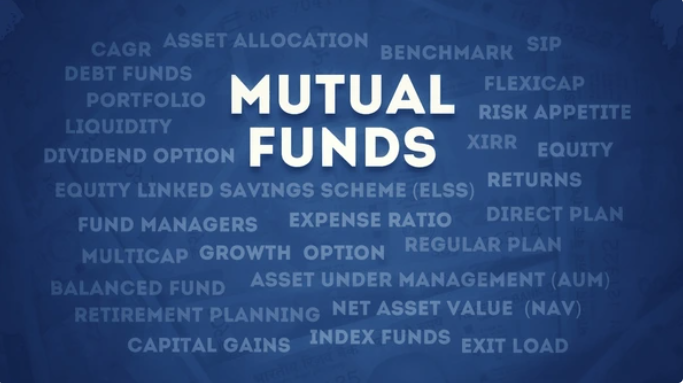NPS vs UPS: Which Pension Scheme Is Better for You?
Planning for retirement is crucial for everyone. If you are a government employee or someone considering a long-term pension plan, you may have come across the NPS (National Pension Scheme) and the recently launched UPS (Unified Pension Scheme). Both schemes are designed to offer financial assistance during retirement, yet they differ significantly in terms of structure, returns, and benefits. Let us simplify this so you can determine which option suits you best. What is the National Pension Scheme (NPS)? The National Pension Scheme (NPS) is a government supported pension scheme that was established in 2004 for central government employees. Subsequently, it was extended to all Indian citizens. NPS operates as a market linked scheme. Both you and your employer make contributions to your pension account. You have the option to select where your funds are invested in equity (stocks), government securities, or bonds. Upon retirement, you are allowed to withdraw 60% of your total savings without incurring taxes. The remaining 40% must be utilized to purchase an annuity (a regular monthly pension). Key Benefits of NPS: Flexible: You have the freedom to decide how much to contribute and where to invest. Tax Benefits: You can avail deductions up to ₹2 lakh under Sections 80CCD(1) and 80CCD(1B). Long-Term Growth: A portion of the investment is allocated to equity, which offers the potential for substantial returns. However, it is important to note that NPS returns are not guaranteed. They are influenced by market conditions, which introduces a certain degree of risk. What is the Unified Pension Scheme (UPS)? The Unified Pension Scheme (UPS) was introduced in 2025 by the Indian government. It is exclusively designed for central government employees who were previously part of the NPS. UPS reinstates the advantages of the former Defined Benefit Pension Scheme, ensuring that your pension is guaranteed. Under the UPS, your pension amounts to 50% of your final basic pay plus DA (Dearness Allowance), provided you have served for a minimum of 25 years. If you have served for at least 10 years, you remain eligible for a minimum pension of ₹10,000 per month. The government contributes 18.5% of your salary, while your contribution is 10%. In the event of your death, your spouse or family will receive 60% of your pension. Key Benefits of UPS: Guaranteed Pension: You will have a clear understanding of the amount you will receive each month. Family Security: The pension continues for your spouse or family members. Inflation-Protected: The pension increases with DA, which is periodically adjusted. However, in contrast to the NPS, you do not have the option to select where your funds are invested or to withdraw a lump sum. Feature NPS UPS Type Market-linked, defined contribution Guaranteed income, defined benefit Investment Choice Equity, debt, or mixed Not applicable Returns Based on market (8–10% average) Fixed (50% of last salary + DA) Risk Level Moderate to High Very Low Retirement Benefit Corpus + annuity Fixed monthly pension Death Benefit Annuity or corpus 60% pension to spouse/family Tax Benefit ₹2 lakh total deduction No separate tax benefit Ideal for Young, market-savvy investors Risk-averse, long-term govt employees Who Should Decide What? Opt for UPS if: You are a central government employee qualified to transition. You desire a stable and guaranteed monthly pension. You wish to avoid any market related risks. You want your family to continue receiving a pension after your passing. You intend to serve 25 years or more in government employment. Opt for NPS if: You are at ease with some level of market risk. You seek higher returns and greater investment flexibility. You want to benefit from additional tax advantages. You are ineligible for UPS or are employed in the private sector. Deadline to Choose UPS If you’re currently in NPS and eligible for UPS, you must opt in by June 30, 2025. After this date, you will not be able to switch to UPS. The choice is permanent. CONCLUSION Both the NPS and UPS are intended to assist you during retirement however, they cater to different individuals. Opt for UPS if you seek security, a stable income, and possess long term government service. Select NPS if you desire greater growth, control over investments, and tax advantages, and are comfortable with certain risks. Always base your choice on your career trajectory, financial requirements, and your tolerance for risk. If necessary, consult a financial advisor for tailored assistance. FAQs 1. Can I switch back from UPS to NPS later? No. Once you choose UPS, the decision is final. You cannot switch back to NPS later. Yes. You can voluntarily invest in NPS Tier I or Tier II, but your pension will only come from UPS. NPS may offer higher returns (8–10%) due to equity exposure, but it carries market risk. UPS gives a fixed pension, which is safer but may be lower over time when compared with good NPS performance.
NPS vs UPS: Which Pension Scheme Is Better for You? Read More »











